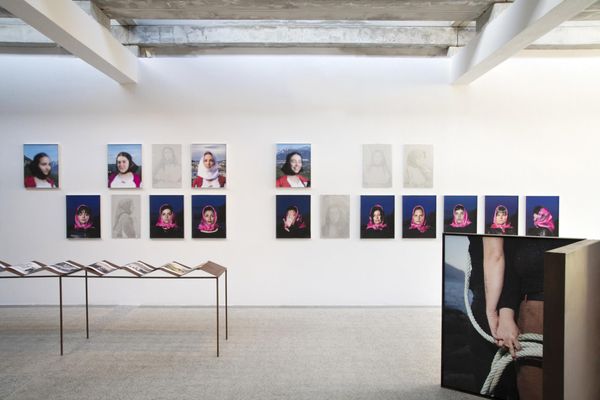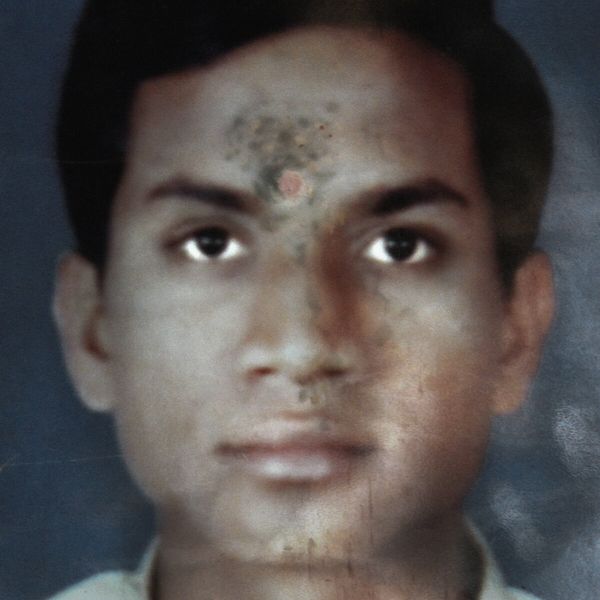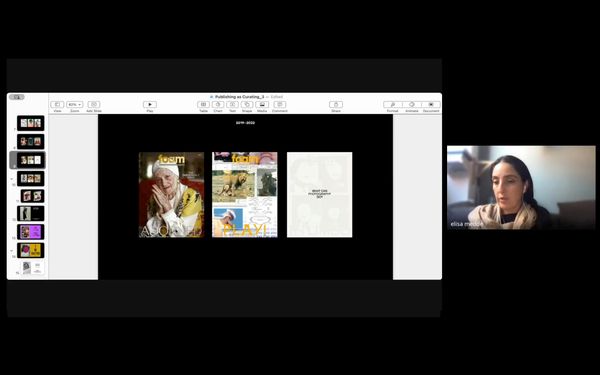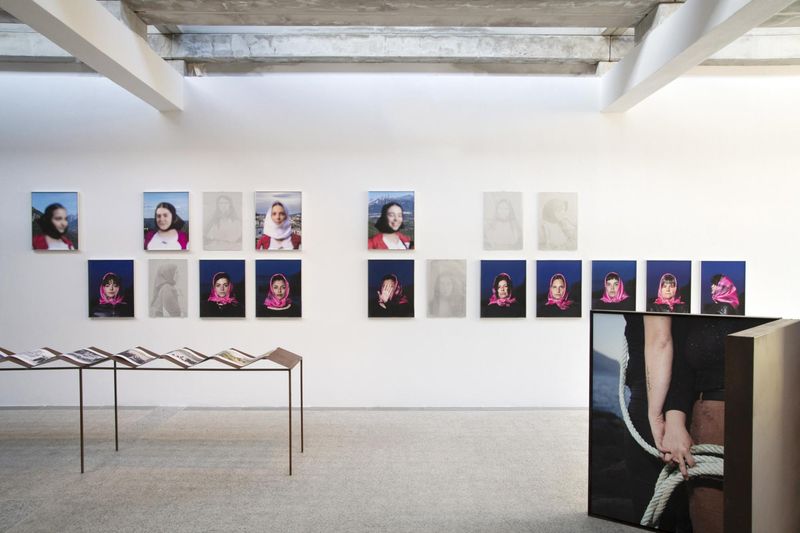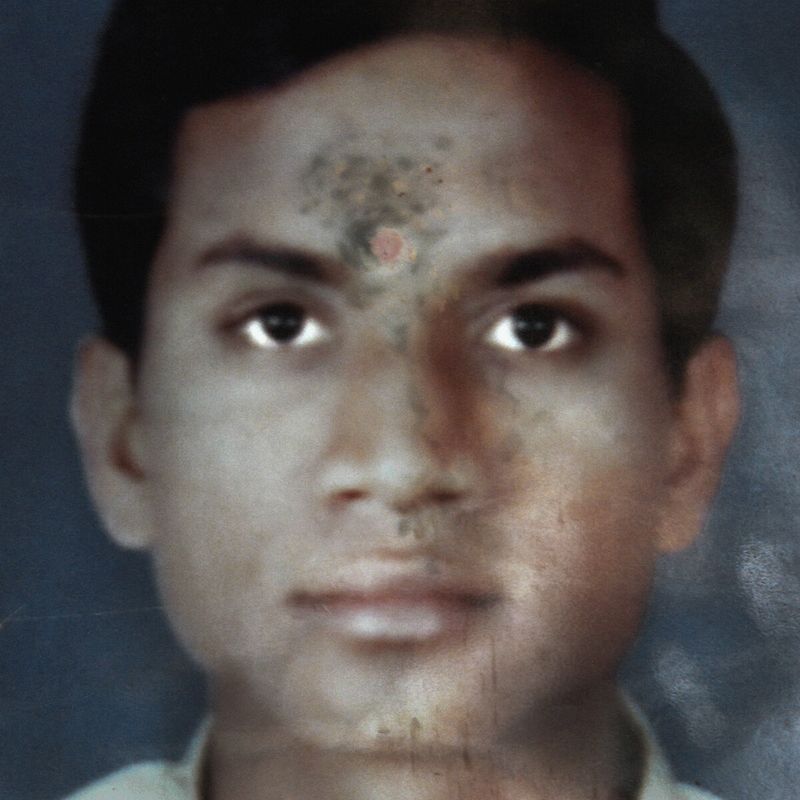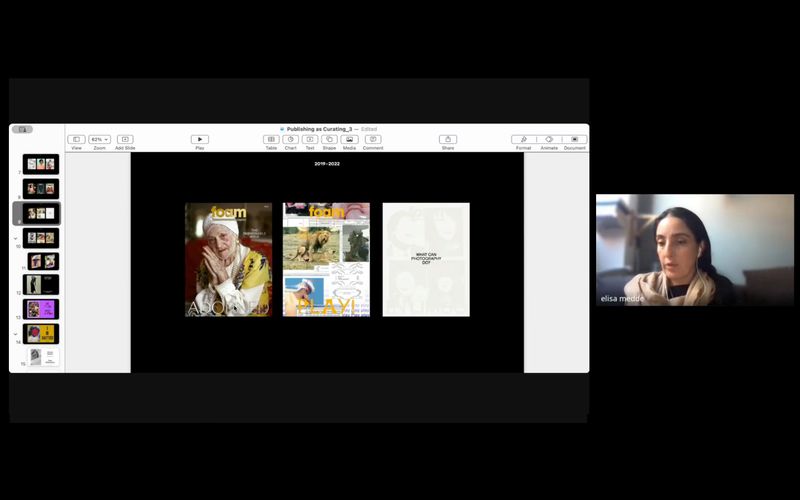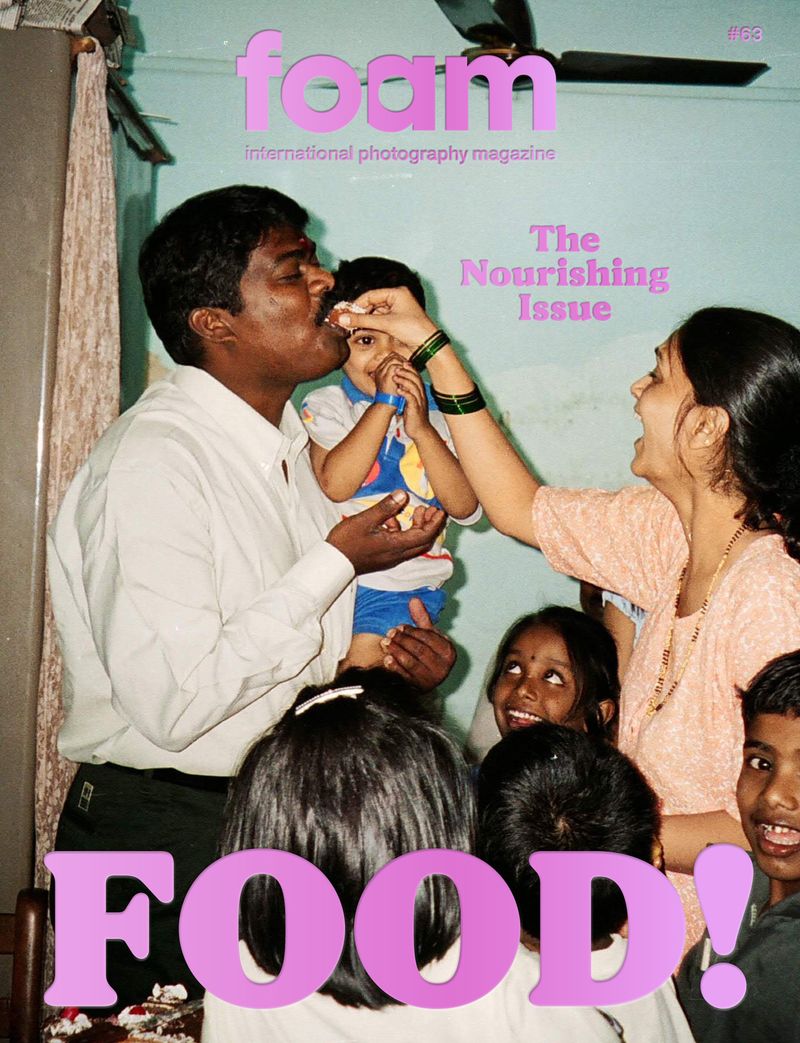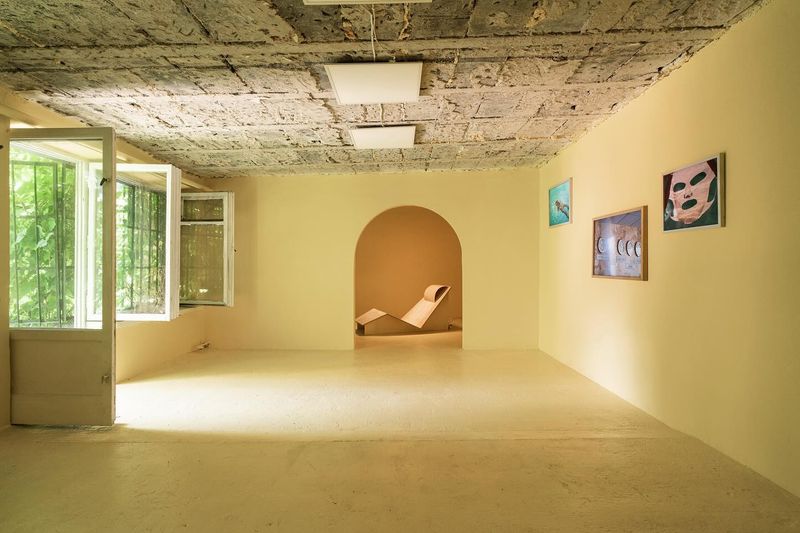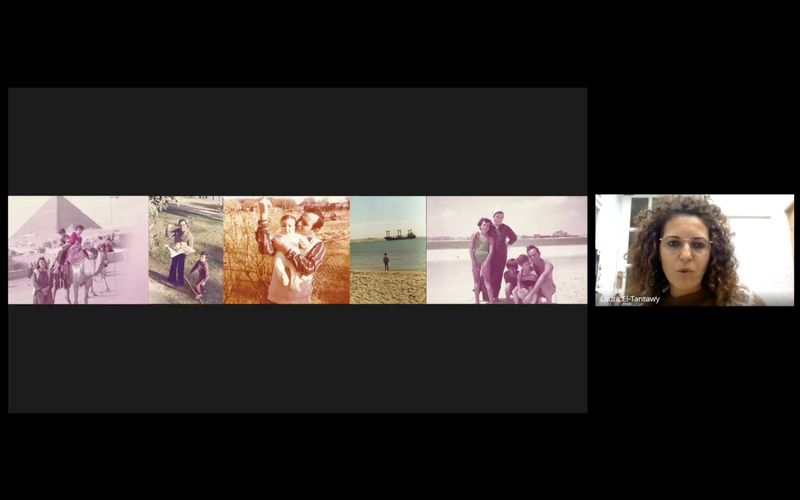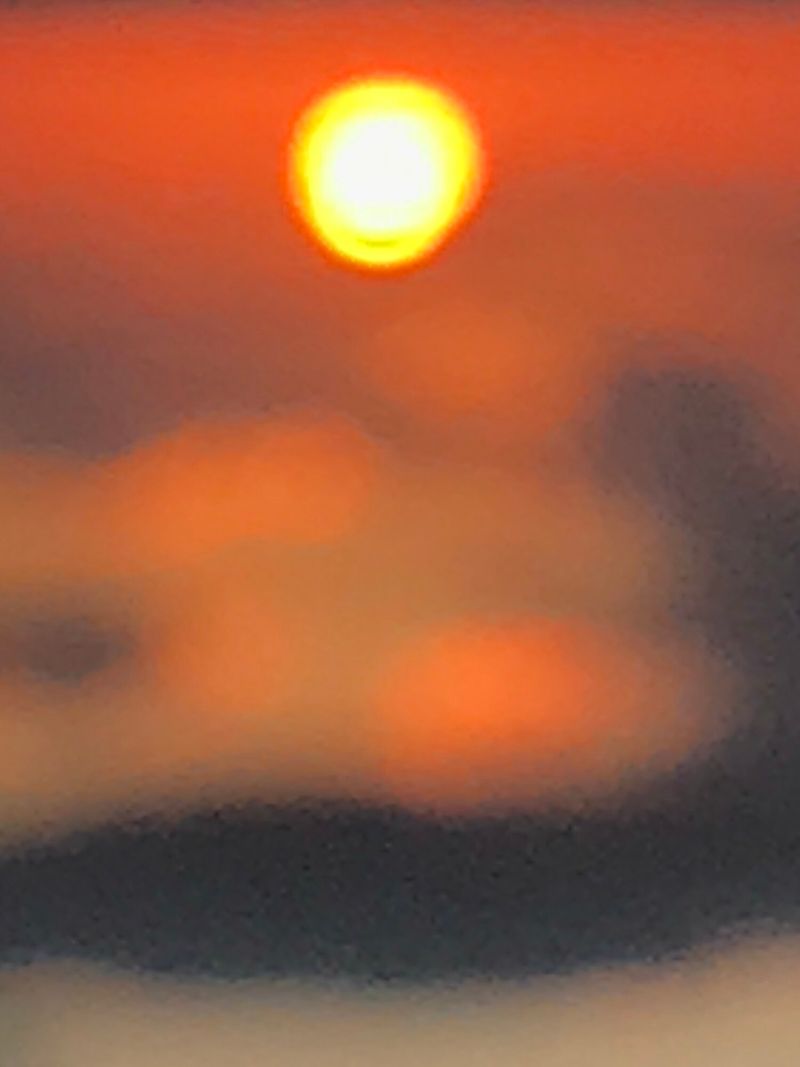Elisa Medde And Laura El-Tantawy On Expanding and Activating Documentary Narratives
-
Published24 Mar 2025
-
Author
We met up with the co-heads of CRITICAE, PhMuseum's Online Masterclass on Documentary Photography, to deepen into their perspectives on visual storytelling and teaching methods, which prioritize plurality and collaboration.
Applications are now open for the new edition of CRITICAE 2025/26, for the second time held collaboratively by British/Egyptian photographer Laura El-Tantawy and Italian editor, curator and writer Elisa Medde.
Mixing theoretical seminars with practical sessions, individual meetings with group classes, El-Tantawy and Medde will guide a group of practitioners through the realization of their visual projects. They will inspire and challenge them to delve into different modes of storytelling, while questioning the documentary aspect of photography.
Ciao Elisa and Laura, thanks for joining again our Masterclass Program this year. You will share CRITICAE as co-heads for the second time. What can students expect from this collaboration? How are your different backgrounds coming together?
Laura: I’m thrilled to be teaming up with Elisa again to co-teach CRITICAE. Elisa is a dear friend and someone I’ve turned to for guidance on my own work over the years. Together, we bring a wealth of experience from different perspectives – Elisa as a curator, editor and much more, and myself as a visual author and book publisher. This mix of backgrounds will provide participants with a rich and diverse approach to contemporary documentary photography, covering everything from the artistic to the political and environmental.
Throughout the masterclass, we’ll guide participants through every stage of their project – from initial pitching to realisation – and also explore how they can take their work further into publishing, exhibiting, and activation. This hands-on, results-focused approach makes our offering truly unique, and we’re excited to help you bring your photographic projects to life. We’d love for you to join us on this creative journey.
Elisa: I am very excited to continue this journey with Laura as co-heads of this Masterclass Program. I have known Laura and admired her work for a very long time. We have collaborated multiple times in the past and that gave me the chance to witness the depth and solidity of her working method, and the commitment she shows towards the subjects of her research. Visual storytelling requires a very strong agency and awareness, both during production and dissemination - which is also where I look forward to building upon. Documentary practices have expanded in broad and rich directions, and it is very important to be able to master these in a conscious way - so to make sure that intent coincides with output, and be able to build a solid body of work that has meaning. We will have the chance to explore together all stages and challenges of the practice, from the concept idea to its materialization, balancing out theoretical thinking with practical restitutions, always thinking about spectatorship and the creation of meaning as an integral part of the conversation.
What are some of the key concepts or themes that you are interested in exploring within CRITICAE?
Elisa: I am very much interested in both process and message, ultimately in what we can do with photography and how that message can be disseminated in the most effective way. Photography is a medium in constant transition and documentary practices are constantly expanding, which makes everything very exciting but also challenging to handle so that the medium (whatever chosen, or whatever combination of them) properly serves its purpose. It is important to keep in mind that there must be reasons behind every choice, and that communication always goes hand in hand with reception. The role of the story-teller and its implication - who tells the story - is also a very important part of the work itself, and I am very excited in witnessing a very fertile conversation about it within the field. My wish is to support the participants in being active actors of such conversations, and walk with them in finding their own strong voice.
Laura: I’m always fascinated by where documentary photography stands today and where it might be heading. It’s surprising to me how many limitations people place on the genre, as for me, it’s the most open and freeing form of photography. I always tell participants that the only real limitation is the one they place on themselves. There’s often a misconception that I expect participants to create work similar to my own, but nothing could be further from the truth. I encourage them to explore any form of expression that best conveys their message, whether that’s stills, video, sound, poetry – whatever language feels right for them alongside visuals.
As visual storytellers, I believe we should never simplify our ideas or visuals. Instead, we should respond to the complexities of our world in ways that are equally layered and articulate. It’s about embracing the richness of our experiences and finding the best way to express them.
Could you share any comments regarding what you learned from this experience?
Laura: I always walk away from CRITICAE amazed by how expansive the potential is for telling photographic stories. The level of visual literacy among the participants is so refined, and it’s inspiring to see how diverse their approaches are. One of the things I’ve really valued is the collaborative teaching aspect. It’s a fantastic way to offer multidimensional feedback, which I believe is essential for growth. The balance between collective learning and individual one-on-one sessions is also key. It allows for a rich exchange of ideas within the group, while still giving each participant the opportunity to receive feedback tailored specifically to their practice. It’s a wonderful mix that makes the learning experience feel personal and dynamic.
Elisa: As we are now approaching the end of the program I am deeply pleased with the inspiring path we walked so far. All the participants have evolved in their practice and projects each in their own way, with results that have exceeded my expectations. I feel that the diverse approaches that Laura and I bring to the table have been effective in offering the participants a well-rounded approach, and I have particularly enjoyed the collaborative sessions in which the participants themselves offered critical insights to each other - a precious opportunity.
Are there any works or processes developed during the program that you would like to highlight as particularly effective?
Elisa: I am a big fan of plurality, both in terms of approach and response to works. And I feel that the system we have been building goes in this direction, with all the elements working towards the common goal of providing a diverse and multilayered perspective towards each participant’s research. The studio visits, the reviews, the one-on-one conversations and the independent peer reviews that the participants set up amongst themselves, all contribute to the creation of that collective brain that fuels so much of what we do. Moreover, I feel this approach allows for a very solid and genuine sense of solidarity within the group, which is not only extremely useful and powerful project-wise, it is beautiful.
Laura: The Studio Visits are a fantastic opportunity to connect with other creative practitioners and open up new networking possibilities. I think many participants respond positively to this aspect, and it’s something I find incredibly exciting as well. Bringing in colleagues and people I deeply respect to share their passions is such a rewarding experience. It’s not just about the technical aspects – it’s about exploring the broader journey of being an artist. The collective sessions and ongoing critical discussions we have as a group are equally important. They spark conversations about contemporary issues in the medium, as well as practical questions about the profession, such as how much to charge for your work or the process of publishing a book. These discussions are invaluable in building a well-rounded understanding of the industry today and help demystify some of the critical aspects of our practice.
Elisa, you have been practicing as a curator and editor for many years now. What can you bring of this expertise when assisting photographers in the development of their work?
One of the most important aspects in my mentoring activities is to make sure that whatever projects participants are busy with, what they have in mind actually is present in the visual outcome, that intent and visuals are aligned. My work ultimately revolves around presenting, disseminating, activating, ultimately making sure a certain message, a certain conversation comes across. This is a fascinating yet tricky territory, there is no one recipe that fits all, and each practitioner needs to find their own method, and be aware of criticalities.
Laura, how does your personal practice inform the way you approach teaching?
My personal practice is fluid, and I like to approach making images in a way that’s not fixed to one method. I allow the theme, story, or environment to inspire my visual approach rather than imposing my own style or technique. This openness to experimentation is something I find exciting – it brings new energy to my work and keeps things fresh. I bring that same mindset into my teaching. I’m open-minded when it comes to subject matter and approaches, and I’m also flexible in discussing different possible outcomes. Flexibility is at the core of my practice, and I believe it’s equally important when it comes to teaching. Every project and every individual brings something unique, and I aim to support that by being adaptable and encouraging creative exploration.
What advice would you give to documentary photographers who are considering enrolling in the program? How can they benefit from it and from online teaching in general?
Laura: My advice to documentary photographers considering the program is to apply with a clear outcome in mind – whether that’s completing a project, publishing a book, or having an exhibition. Starting with the end goal helps give the journey purpose, and it also allows me to better support you along the way. I can focus on the specific areas where you need guidance and provide the resources that will be most useful to you.
I also encourage everyone to approach their work with an open mind. Expect to get lost and then find your way again – that’s part of the process. The journey will be filled with moments of frustration, but it’s the kind of frustration that pushes you to explore deeper, and it’s essential to the creative process. It’s not easy, but that’s why we’re here to guide you, share our own experiences, and support you through every step of the way. Online teaching can be incredibly beneficial as it allows for flexibility and a supportive community, where you can tap into expert advice, collaborate, and grow without any geographical boundaries.
There’s an intimacy and sense of family that grows between participants. I’ve seen this in every CRITICAE program I’ve been involved with – and I believe this year will be my 5th time working with PhMuseum on this masterclass. It’s a truly special space where connections are made, and everyone is invested in one another’s growth.
Elisa: My suggestion is to come with some core questions to be answered, and a project in mind. This might change along the way, but I find it important to both help the participants keep a perspective and us to support them in the most appropriate way. They can expect a program that is tailored around their needs, and that is flexible enough to cover a very broad range of aspects. At the same time it is a program that will confront them on their weak points, and encourage them to face and transform them in strength. Not easy and surely challenging - but also very rewarding. I think it is also important to come to the table allowing the possibility to walk towards unexpected roads and directions.
--------------
CRITICAE Online Masterclass On Documentary Photography is part of PhMuseum's educational program, comprising five different masterclasses that will all share a single intake period running until 5 June, with classes beginning in October 2025. Each course is tailored to meet the needs of emerging photographers, artists, curators, and contemporary storytellers looking to bring their methods to the next level. Check out which program suits you best at phmuseum.com/education
--------------
Application key dates, scholarships and participation fee
Before 8 May – If you apply by this date, you are eligible for the full scholarship. In your motivational letter, explain why you’d be a strong candidate, and how you would benefit from this support.
Before 8 May – If you apply by this date, you can save €350. All applications submitted for the scholarship will be automatically eligible for the Early Bird Fee of €1,850.
Before 5 June – If you apply by this date, you can join the program by paying the Regular Fee of €2,200. Since applications will be reviewed on a continuous basis, early submissions receive priority for seat allocation.
If you are offered a place, PhMuseum is happy to write you a supporting letter when you try to secure any external funding opportunities. In previous editions of our masterclasses program, the candidates' fees were covered thanks to the generous contribution of the IWMF Howard G. Buffett Fund for Women Journalists, Mondriaan Fonds, Arts Council Malta, and other programs. Read our guide to 2025 Education Funding for Visual Artists about opportunities that can help you secure funding.
